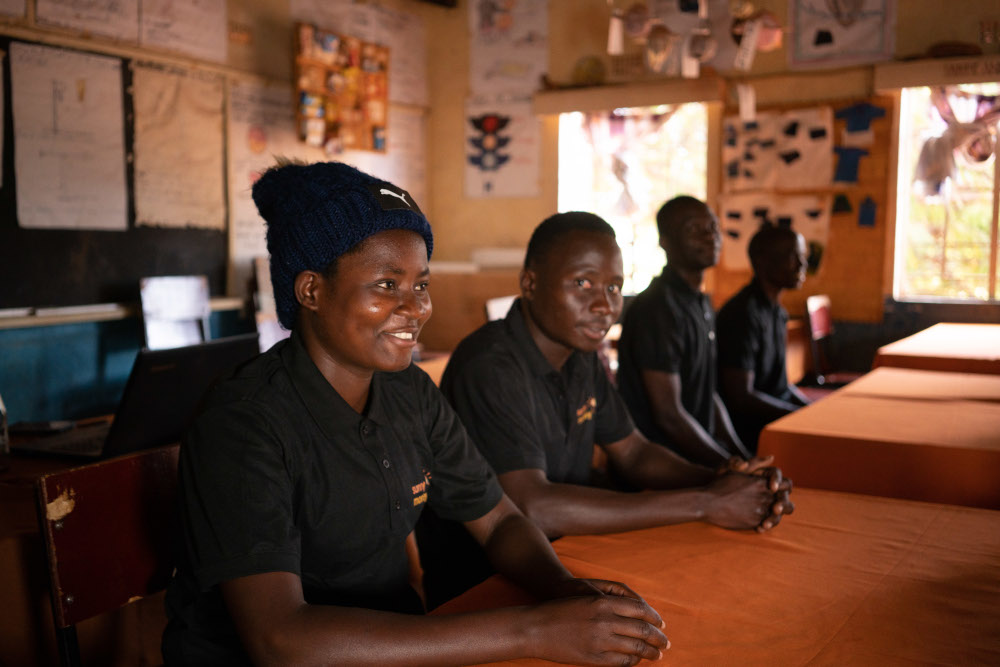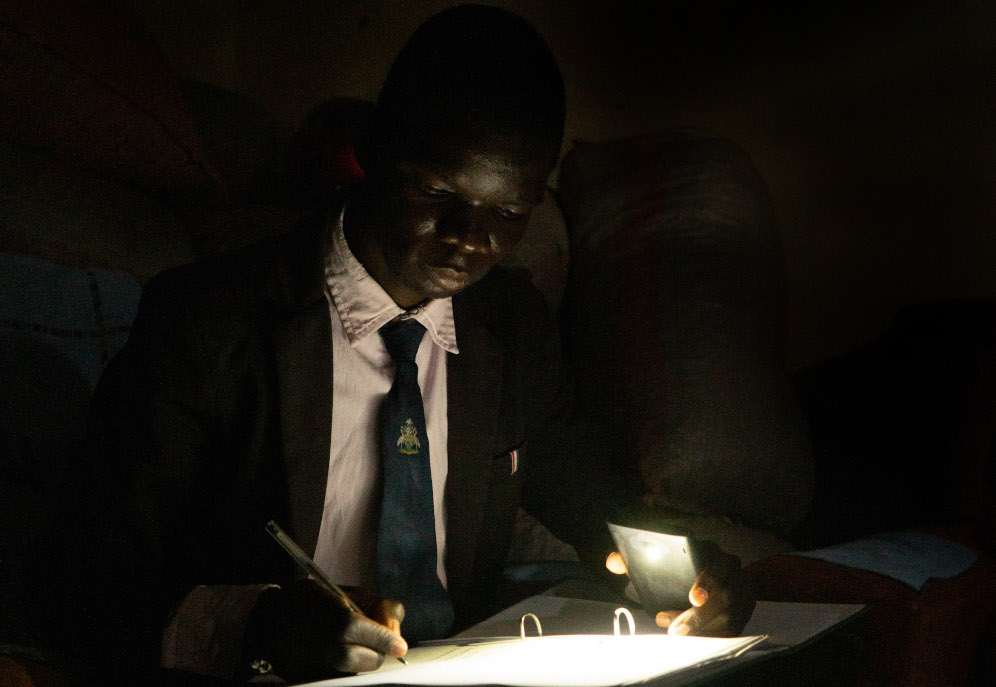SolarAid – Light a Village | Turner Kirk Trust

Founded in 2006, SolarAid is an international development charity that is working to combat poverty and climate change in Africa. Their mission is to create a sustainable market for solar lights in sub-Saharan Africa and eradicate the kerosene lamp. Through their social enterprise, SunnyMoney, SolarAid distributes and sells solar lights to people living without electricity in Zambia and Malawi.
Only 4 per cent of rural Malawi is connected to electricity. While cities across Africa have seen greater access to solar lighting, many rural communities across the continent are being left behind.
Energy poverty forces families, hospitals, schools, and other public buildings to use dangerous alternatives such as candles, homemade torches, and kerosene lamps. This is not only unsafe, but poses a serious health risk and is incredibly harmful to the environment, emitting huge amounts of carbon into the atmosphere.
For many people living in these conditions, their only option to escape darkness is an open flame. In many cases, this can lead to terrible accidents. These methods of lighting their homes can also be expensive, further compounding the effects of energy poverty.
Children in rural Malawi struggle to study at night, while their teachers have difficulty preparing for school. The thick, toxic smoke released by unclean lighting methods leads to widespread health complications. Over 4 million people a year die from illnesses attributed to household air pollution.
In 2020, the Turner Kirk Trust provided a philanthropic gift of £75,000 to SolarAid to fund a brand-new pilot in Malawi to aid in the mission of lighting up all of rural Africa by 2030. The 12-month pilot project – named Light a Village – was launched in March 2021 to provide solar lights through SunnyMoney to every household in a single, off-grid village in central Malawi.
The purpose of the project was to test and discover a new commercial model for getting solar lights into more rural communities across Africa. Light a Village is fundamentally different from other initiatives run by SolarAid or other solar charities in that focused on reaching 100 per cent of households in a single community through a business-based deployment model run by the charity’s social enterprise, SunnyMoney. The objective was to ensure that by the end of the programme a year later, all 500 homes within the pilot would still be using solar lighting.
The lessons of the pilot will help the charity to experiment and test a model of working that could be a springboard to increasing access to renewable energy across rural Africa. As part of the support, the Trust gave the scheme ‘Permission to Fail’, meaning that SolarAid has complete freedom to experiment, test, and trial new methods to put an end to the problem.
SolarAid successfully provided solar lighting systems to 500 homes in Kasakula, a rural community in the Ntchisi District. After a short period of free lighting, the community switched to a pay-as-you-go model, which provides energy at a much cheaper rate than unclean and hazardous lighting sources such as kerosene lamps.
A successful second phase of the Light a Village project later provided solar-powered lighting to a further 2,000 homes and 12 school in Ntchisi, Malawi. The Turner Kirk Trust was the leading funder of this phase.
Through these two phases, SolarAid has formed instrumental partnerships in the Ntchisi region and beyond. Through Light a Village, SolarAid is now working closely with Malawi’s Ministry of Energy to scale the innovative energy-as-a-service model across the district of Ntchisi. This could see the project reaching in the region of 67,500 households in a region with a population of 317,069.
Whilst implementing the pilot, SolarAid established strong regional partnerships with the Department of Energy and Local Chiefs. The District Education Manager has also provided a Teachers Development Centre, which will act as an operation centre at the pilot site.
The third phase of the project is now well underway, with funding secured to deliver solar systems to 7,500 homes in Kasakula, Ntchisi, with 4,076 of these already installed. SolarAid’s goal is to provide lighting to 100% of homes in Kasakula by 2025. Funders of this phase include the Dutch Postcode Lottery DOEN, and the Good Energies Foundation, and the World Bank.
A Dutch firm, Hystra, is on the ground in Malawi helping SolarAid refine their business model based on current data. This will aid them in scaling up to provide light to additional regions in Malawi.
Malawi’s Ministry of Energy has agreed to help with nationwide mapping to identify locations to reach on a national scale. The project is gaining rapid traction, and SolarAid has ambitions to start work in other countries in sub-Saharan Africa.
The Light a Village project is an excellent example of the Turner Kirk Trust's values in practice. Funding the Light a Village pilot has acted as a springboard for discovering a scalable solution to sub-Saharan Africa's lack of electricity access.
“We are very excited about seeing this new, innovative project coming to life. We are hoping this will give us a sustainable model we can develop and replicate as we are working towards our mission to light up every home, clinic, and school in Africa by 2030.”
